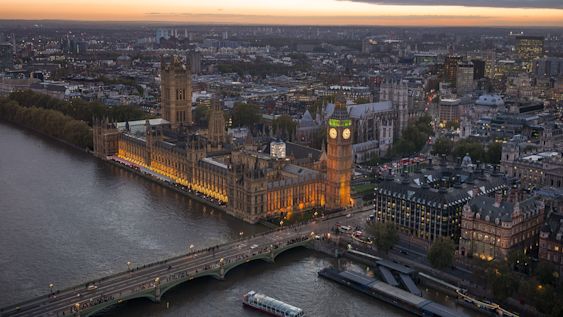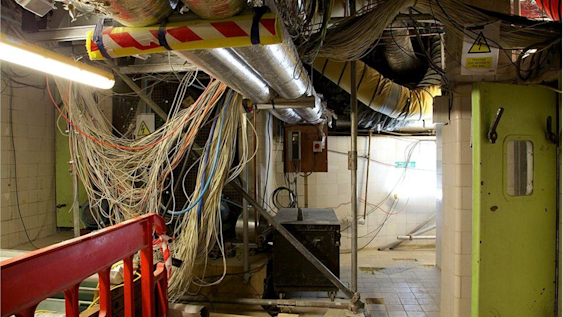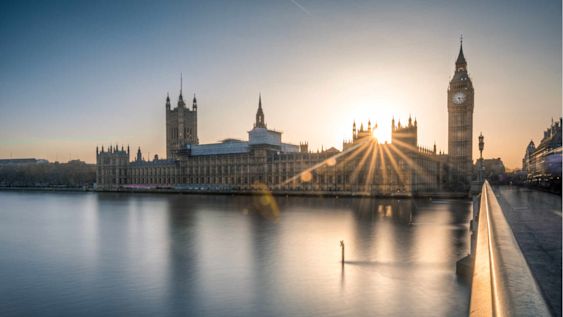
An inter-parliamentary body for the UK Union?
Before Brexit, mechanisms for inter-parliamentary relations and scrutiny of inter-governmental relations in the UK were unsatisfactory. Post-Brexit, the need for reform has become urgent. There should be a formal inter-parliamentary body, drawn from all five of the UK’s legislative chambers, with responsibility for scrutiny of inter-governmental working.
Brexit and the COVID-19 pandemic have in quick succession highlighted the inescapable truth that in the last 20 years the UK has edged towards becoming a de facto federal state. The different choices made by the four governments and their respective legislatures about how to manage COVID-19, in England, Northern Ireland, Scotland and Wales, have brought the reality of devolution home to a much broader section of the population. Furthermore, the controversial UK Internal Market Act – passed into law just before Christmas 2020 – served as a reminder that on leaving the EU’s Single Market there was no longer a guarantee that there would be a universal set of rules governing the sale of goods and services throughout the UK.
The very public rows over what became the 2018 EU (Withdrawal) Act and then over the Internal Market Act and other Brexit legislation, along with the divergent responses to the pandemic, have highlighted tensions between the four governments of the UK. Wide areas of legislative and policy competence have been repatriated from the EU; the overlap between the powers of Westminster and of the devolved legislatures has expanded massively as a consequence; and the potential for conflict has grown proportionately. Northern Ireland has been allocated a unique status under the UK-EU Withdrawal Agreement.
Inter-governmental relations: rising scrutiny demands
In the last 20 years, inter-governmental negotiations and relations (IGR) among the four UK governments, conducted through the Joint Ministerial Committee (JMC), have received scant parliamentary scrutiny.
While the same party was in government in Cardiff, Edinburgh and London, the lack of scrutiny perhaps did not matter so much: such disputes as there may have been were largely settled informally. However, more recent years have seen proliferating calls for action:
- In 2014, both the Strathclyde Commission on the Future Governance of Scotland and the Silk Commission on Devolution in Wales, in its second report, urged institutional investment in inter-parliamentary working.
- By 2015 the Scottish Parliament’s Devolution (Further Powers) Committee was advocating for better inter-parliamentary dialogue.
- In February 2018, the Welsh Senedd’s Constitutional and Legislative Affairs Committee published a report recommending a Speakers’ Conference on inter-parliamentary relations (IPR), a call for action which was broadly supported by both the Lords Liaison Committee and the Commons Liaison Committee in their reviews of the two Houses’ select committee systems. The House of Commons Public Administration and Constitutional Affairs Committee and the House of Lords Constitution and EU Committees have also shown an active interest in the topic.
- In September 2020, as part of its post-Brexit overhaul of its scrutiny committee structures, the House of Lords established a free-standing select committee on the Common Frameworks (the means by which, before the UK Internal Market Act was conceived, it was intended to implement that internal market).
- Also in 2020, the Institute for Welsh Affairs published a research paper on the state of UK inter-parliamentary relations; and, in their contribution to the report Parliament and Brexit published by the UCL Constitution Unit and UK in a Changing Europe, Jack Sheldon and Hedydd Phylip highlighted the challenges raised for inter-parliamentary scrutiny of IGR by Brexit.
Despite this harmonious chorus of demands, the response from Whitehall has been very slow, even allowing for COVID-related challenges. Improved mechanisms for inter-governmental cooperation, a prerequisite for better IPR, have been studied by the Cabinet Office for over two years now, and in a November 2020 statement, setting out some extremely modest improvements to the IGR mechanisms, the Chancellor of the Duchy of Lancaster announced that the government “remains committed to finalising a product at pace”. Nothing further has since been said.
Before Brexit, the mechanisms for both inter-governmental and inter-parliamentary relations in the UK were unsatisfactory. Post-Brexit, they urgently need reform.
Proposal to the Procedure Committee: an Inter-Parliamentary Body for the UK
The House of Commons Procedure Committee launched a major inquiry into House of Commons procedure and the territorial constitution in September 2020. After COVID slowed progress somewhat, the Committee is now accepting evidence until July.
The Procedure Committee’s inquiry is a chance to galvanise the legislatures of the UK into joint action.
In a recent joint submission to the Procedure Comittee inquiry which I made with Hansard Society Trustee Paul Silk, we argue that, if it is assumed – optimistically – that the JMC will be reinvigorated, and that the process of inter-governmental cooperation and joint decision-making will be improved, it is imperative that there are complementary improvements in inter-parliamentary mechanisms for the oversight and scrutiny of that inter-governmental work.
As Sheldon and Phylip noted in their 2020 chapter, the Inter-parliamentary Forum on Brexit – bringing together representatives of the relevant committees of the five UK chambers over the past three years – has been an example of what an informal body can achieve. However, in their evidence to the Procedure Committee, they also note that it has “lost momentum”.
In our submission, we argue that, for real accountability for inter-governmental action to emerge, there needs to be a more formal structure with a clearly recognised role, a transparent and accountable way of working, and proper reporting mechanisms. In other words, there needs to be clear ‘buy-in’ from the governmental and parliamentary sides.
We favour moving swiftly towards the creation of a formal inter-parliamentary Body of around 20 to 50 parliamentarians which would have responsibility for the scrutiny and oversight of inter-governmental working.
We have used the term ‘Body’ in our submission to denote something more formal than a ‘Forum’. We see the Body as akin to an international parliamentary body that is more than just a place for parliamentarians from different institutions to meet and discuss, valuable though these things are.
There are some international examples worth studying:
- The ‘Benelux Parliament’ (strictly, the Benelux Inter-parliamentary Consultative Council) is interesting in terms of its composition: its Belgian members come both from the national parliament and from the other legislatures in Belgium.
- The Nordic Council (where the autonomous regions of Greenland, the Faroes and Åland are represented in addition to Denmark, Finland, Iceland, Sweden and Norway) and the Baltic Assembly do appear genuinely to hold Ministers to account.
We believe that the Body we propose should:
- be drawn from the membership of both Houses of Parliament and the three devolved legislatures;
- be funded jointly by the Houses/legislatures, and have a small, permanent secretariat provided by them jointly, the duties of which would include providing public information;
- have powers akin to those of select committees to take evidence and report, to travel and to appoint sub-committees;
- aim to work consensually;
- be recognised in the Standing Orders of each House/legislature;
- meet frequently enough that its members get used to working together, but not so frequently that the commitment becomes too onerous;
- be clearly and directly co-ordinated with the Joint Ministerial Committee’s timetable, and have a power to call Ministers from that body to give an account of its work and be questioned upon it; and
- use hybrid virtual and physical meetings as the default, drawing on the lessons of changes in parliamentary procedure during the COVID-19 pandemic.
Enjoy reading this? Please consider sharing it
Latest

Compendium of Legislative Standards for Delegating Powers in Primary Legislation
The scope and design of the delegation of legislative powers in any Bill affects the long-term balance of power between…Parliament and Government. The House of Lords Delegated Powers and Regulatory Reform Committee (DPRRC) scrutinises all such delegation. This report distils standards for the delegation of powers from 101 DPRRC reports from 2017 to 2021.

Genetically modified organisms: Primary or delegated legislation?
A Statutory Instrument comes into force on 11 April that changes the legal requirements for the release of certain types… of genetically modified plants. Some argue that the changes should have been made by primary, rather than delegated, legislation. Where does the boundary between the two lie?

Constitution and Governance in the UK: Parliament and Legislation
The Brexit process, the pandemic and the approach of the Johnson Government have all tended towards Parliament’s margina…lisation and the accretion of executive power. For UK in a Changing Europe’s report on the constitutional landscape, we show how – in the legislative process and control of public money and executive action, including delegated legislation.

What role does the UK Parliament play in sanctioning an individual? [Video]
Sanctions are imposed on an individual in two stages - by Ministers first making regulations and secondly designating th…e individual, using a power in those regulations. Parliament has a role in the first stage, but not the second.

Written evidence to the House of Commons Public Accounts Committee: the Restorat…ion and Renewal of Parliament
Our submission to the Public Accounts Committee highlighted the financial and practical challenges that MPs face in deci…ding the fate of Parliament’s Restoration and Renewal programme. We particularly questioned the viability of the proposal to continue operating the House of Commons Chamber in the middle of a building site.

Written evidence to the House of Commons European Scrutiny Committee: Retained E…U Law: Where next?
Our submission to the House of Commons European Scrutiny Committee inquiry into retained EU law (REUL) placed the issue…in the context of our Delegated Legislation Review. It discussed REUL’s diversity and amendment; the people and organisations to whom REUL amendment may matter; and parliamentary scrutiny of delegated legislation arising from amending REUL.